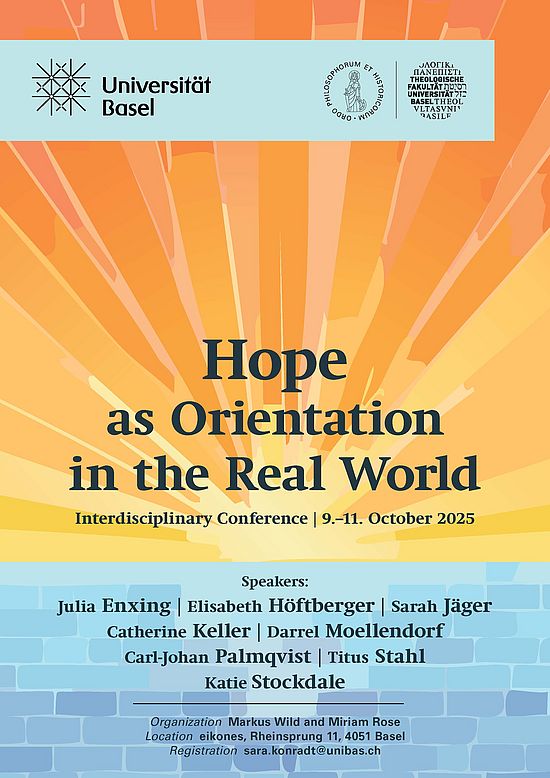International Conference "Hope as an Orientation in the Real World"
The realistically gloomy forecasts for the future make transformative action urgent. This applies to the climate as well as to democratic structures, to education as well as to healthcare.
Transformative action, according to a widely shared assumption, requires hope or at least is much encouraged by hope. The prospect of opportunities for improvement, moves people to act individually and collectively. Transformative action usually implies a willingness to make sacrifices, to change habits and social structures. Motivating people to do so can only succeed through hope.
However, hope is at risk. It is endangered by false forms: it can be an illusionary consolation and thus prevent transformative action. Or it can be reduced to mere utilitarian optimism without any real basis in facts.
It is therefore essential to work on the task of formulating a hope that becomes a perspective for the real world. What gives reason for hope and what does such hope consist of?
While for a long time in European intellectual history the topic of hope had its place in religion and academically in theology, since the Enlightenment, but especially in recent decades, politics, culture and coaching have dealt with the topic of hope. From a scientific perspective, key debates are located in philosophy and many other disciplines. Scientific theology is in the process of rediscovering the topic of hope after Jürgen Moltmann's Theology of Hope from 1964 and participating in the broad interdisciplinary discourse.
The aim of the conference is to relate theological and philosophical debates to each other under the guiding question of how hope can be conceived as possible in the real world beyond illusion and utilitarian optimism. In order to further define hope, the conference will also look at constellations: How can hope be related to fear, to pessimism, but also to utopia?
As hope is increasingly recognized as crucial for the human future and human possibilities for action, some disciplines or scientific currents are refocusing on the topic of hope. This is happening in theology, education and psychology, for example.
Conference schedule
You can find the conference schedule here

The conference is organized by Prof. Dr. Markus Wild (Theoretical Philosophy) and Prof. Dr. Miriam Rose (Systematic Theology / Dogmatics).
Register for the conference via e-mail to: sara.konradt@unibas.ch
Quick Links
Social Media
